Newberry Consort leaders will close the score with season finale
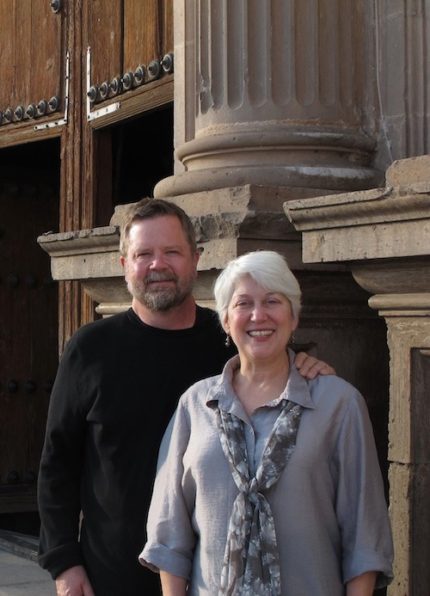
Try to imagine how Chicago’s lively, nationally respected early music scene would have developed without the pioneering efforts of the Newberry Consort.
Now try imagining that worthy ensemble having survived for 35 seasons without the invaluable contributions of longtime members David Douglass and Ellen Hargis, its co-artistic directors for the last 15 years.
A fool’s errand, in both cases.
Having taken over the leadership reins of Chicago’s flagship early music ensemble from cofounder and viola da gambist Mary Springfels following her retirement in 2007, the husband-and-wife directors are now bowing out themselves, and with similar grace.
Douglass and Hargis have announced their retirement with the ensemble’s concerts this weekend, to be performed at venues in Hyde Park and Evanston. This final program of the Newberry Consort’s 35th season— titled “Four Queens and a Joker”—will serve up a typically venturesome mix of 17th and 18th century Italian vocal and instrumental rarities.
The directors embody the creative vision that has made early music a major growth industry in classical music roughly since the mid-1960s when musicians, ensembles and the recording industry began rallying around the flag of historically informed performances using period instruments, or modern reproductions thereof.
Together, they have put their distinctive stamp on the artistic template that has won a loyal following for “the Newbs” and has inspired the creation of like-minded local groups dedicated to the unearthing of a wealth of pre-Classical repertoire, much of it unknown and unheard outside of recordings.
What’s more, fashioning that repertoire into compelling programs and assembling ensembles of top-flight colleagues to perform it—all the while growing a board and attracting funders—is a juggling act Douglass and Hargis carried off with as much style and verve as they brought to their performances.
The couple each inhabit complementary spheres of early-music expertise, an added benefit that has redounded greatly in the group’s, and audience’s, favor.
A founding member of the consort, Douglass specializes in early violin music, technique and repertoire. A soprano and ensemble member since 2002, Hargis is an adjunct professor at the Eastman School of Music and teaches in the historical performance program of Cleveland’s Case Western Reserve University, among her other academic affiliations.
Recently over coffee and biscotti in their light-filled home in the city’s West Rogers Park neighborhood, Douglass and Hargis talked about their reasons for retiring from the ensemble, why the consort is going strong after more than three decades, and related subjects.
Douglass said physical issues prompted his retirement. He plans to continue composing and arranging music, and to be “more socially active.”
Hargis said she is holding open the possibility of returning to the group as a guest artist: “I’m very lucky that, in my late 60s, my voice has held up, but whether I sing more is a real question.”
Both said they will remain with the ensemble in an advisory capacity, as needed.
The outgoing directors take pride in the fact they are leaving the Consort in much better shape as an organization than in the economically dicey seasons following its split from the Newberry Library in the 2009-10 season, and rebirth as an independent, non-profit organization.
“David and I had never previously been on the governing board of a not-for-profit arts group,” said Hargis. “That was challenging but it was kind of fun getting to know that world. We’re very happy we received support from foundations like the [Chicago-based] Richard H. Driehaus Foundation that allowed us to expand and push the envelope.”
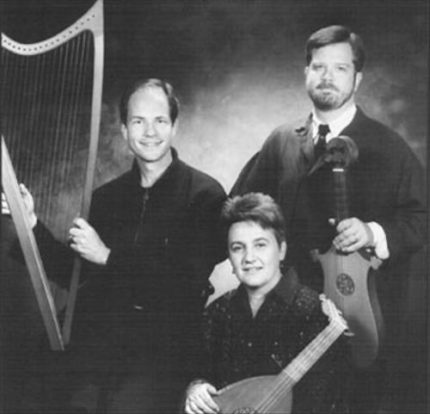
The Newberry Consort is an outgrowth of the former Early Music from the Newberry series, created in 1982 as a means of showcasing the library’s magnificent collections of rare medieval, Renaissance and baroque musical manuscripts and scores, using authentic instruments played by professionals trained in the style and techniques of period performance.
With few American role models for what an early music ensemble would look or sound like, Springfels and colleagues Douglass and countertenor Drew Minter formed the Consort in 1986. A major driving force was to put into practice ideas laid out by University of Chicago musicologist and former music department chair Howard Mayer Brown, who also served as a Newberry Library trustee until his death in 1993.
“I am particularly proud that we were able to go down the path on which Howard set us,” Douglass said. “In many ways he was the consort’s godfather – a major force behind our creating the group, so that the public and not just scholars could hear these hidden gems from the library’s collection. A lawyer friend of his got his firm to create a 501(c)(3) for us pro bono, which enabled us to form a board of directors.
“We started kind of small; later, to make it more accessible to a general public, we realized we had to create more narrative and context in our programs, without dumbing things down. That took us much further than we could have imagined.”
The couple’s final bow as directors this weekend will continue in the multimedia-narrative vein that has become a Douglass-Hargis signature.
The focus of “Four Queens and a Joker” will be on musical card games from 17th and 18th century Italy, dressed up with dancing, costumes and commedia dell’arte flourishes. Two staged vocal-instrumental works—a comic intermezzo by Virgilio Mazzocchi depicting the hunting game La Civetta (The Little Owl) and a cantata by Antonio Caldara, Il Giuco del Quadriglio (The Game of Quadrille)—bracket contemporaneous pieces for baroque mandolin, theorbo and other instruments.
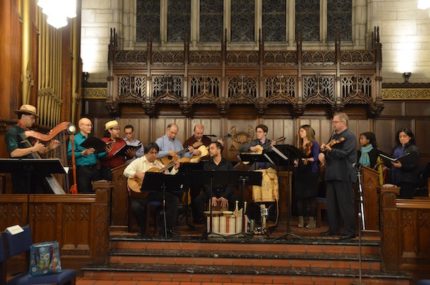
The Consort has weathered various crises over the decades, none more problematic than the scramble for funding that occurred once its institutional parent discontinued its funding. Did they fear for the life of the group at that moment?
“I don’t think we ever really thought about it,” Hargis replied. “We’ve been firemen our entire lives. As freelance artists, that’s what we do,” Douglass added, smiling.
All the same, neither musician took a salary for the next few seasons, beginning in 2009-10 when the ensemble set about building a board and support base, and expanding its audience.
A recurrent problem, at least early on, involved securing needed personnel for the niche programming the directors wanted to present.
“Back then, we didn’t have the budget to bring lots of musicians in from Europe and the U.S., so we had to foster [local] talent,” Hargis recalled. It took some time, but eventually the Consort’s growing national reputation encouraged a number of early music performers to settle in the Chicago area just so they could play and sing with the group, she added.
Enlightening audiences along with entertaining them has been key to the directors’ mission—a two-pronged artistic strategy that has paid off in spades for the consort, but also for others following in their footsteps.
“I am happy whenever people tell us after concerts that not only did they enjoy the music, but also that they learned from the experience,” Douglass said. “Of course you always want that to be the case, but you don’t always expect it.”
Indeed, local audiences have come to rely on the ensemble to introduce them to fascinating rarities organized around an overarching narrative that puts them in historical context— from the sacred choral music of colonial Mexico to the popular ditties, minstrel tunes and country music of Abraham Lincoln’s America.
Such programming diversity hasn’t always made things easy for the group’s PR and marketing people, Hargis admitted. “There came a point when it was impossible to pigeonhole us any longer as just an early music ensemble,” she said.
Succeeding Douglass and Hargis will be the respected trombonist and musical scholar Liza Malamut, formerly based in Boston, whose appointment as artistic director was announced in June and will take effect this fall.
Malamut will inherit an ensemble that appears to be as solid on the business side of the ledger as the artistic. In February the nine-member board hired Chris Stavrou as general manager; the appointment makes him the group’s first-ever full-time paid staff member. The operating budget for the 2022-23 season will be approximately $400,000.
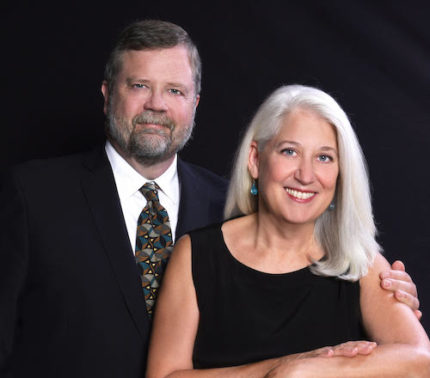
By making ancient music feel astonishingly fresh and immediate, the Consort under the hands-on leadership of Douglass and Hargis has set a very high artistic bar for their successor. Their advice for Malamut as she prepares to lead the Newberry Consort into its 36th season and beyond?
“Invest in the creativity of your musicians, because then they are apt to bring things to the table you may never have thought of,” Douglass said.
“Choose your colleagues well, convince them of your artistic vision, then let them help you realize that vision,” added Hargis.
The Newberry Consort presents “Four Queens and a Joker” 8 p.m. April 23 at International House, University of Chicago; and 3 p.m. April 24 at Galvin Recital Hall, Northwestern University, Evanston. newberryconsort.org.
Posted in Articles
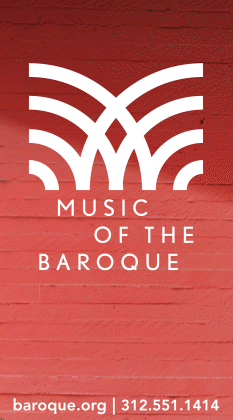
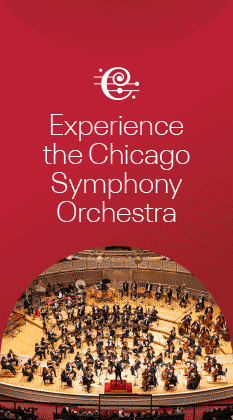
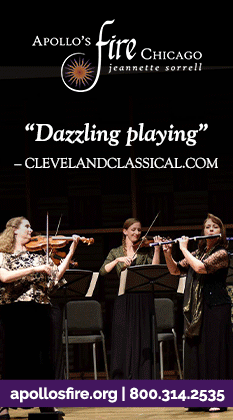


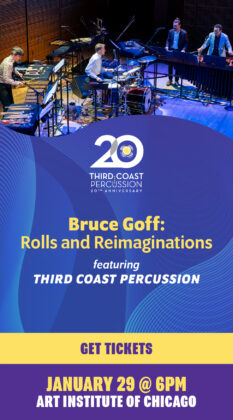
Posted Apr 20, 2022 at 8:07 am by Drew Minter
Dear John,
What a terrific tribute to Ellen and David. I”m so happy to read this appreciation of their work. Working in Chicago with the Consort was a huge part of my life, and it has been gratifying to see how they have continued to make it thrive. Thanks for writing this.
Drew
Posted Apr 20, 2022 at 12:37 pm by Frances Conover Fitch
Thanks for such a comprehensive and accurate tribute. I have been so impressed with the balancing act that David and Ellen have performed over these years, keeping the ensemble solvent and growing, respecting and supporting their performing colleagues, and being such all-around fine musicians. Well done!